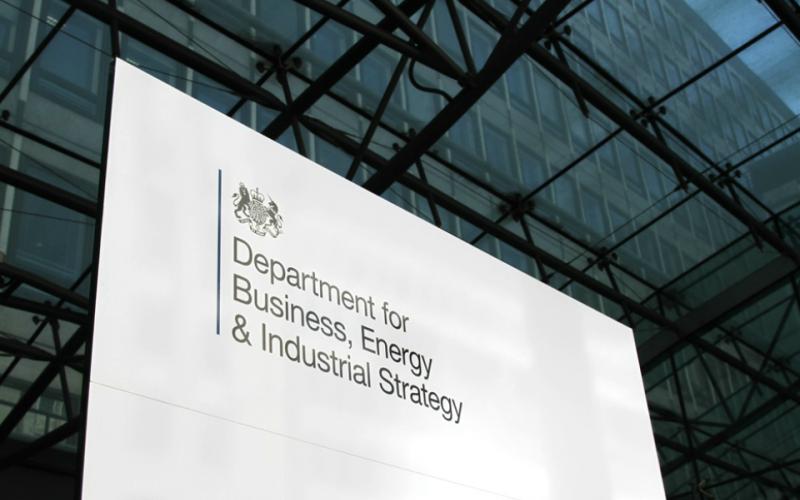
Image: BEIS.
The Department for Business, Energy and Industrial Strategy (BEIS) has confirmed solar will be allowed to compete in next year’s Contracts for Difference (CfD) round, but specific details have yet to be revealed.
In a statement and consultation response released today, BEIS has confirmed the fourth allocation round (AR4) of the CfD mechanism will proceed with three separate pots, one of which is earmarked for ‘Pot One', or more established technologies such as solar PV.
Solar will again compete against onshore wind, while offshore wind receives its own allocated pot and a third pot is reserved for less established technologies, including floating offshore wind.
But BEIS has yet to confirm more specific details of AR4, including precise budget allocations and capacity caps, with those details set to be revealed closer to the opening of the round.
The consultation outcome does however reveal some finer details of how the scheme will be adjusted, following the government’s consultation on potential rule changes earlier this year.
BEIS has determined not to amend the rules on projects featuring energy storage participating in AR4 as of yet, meaning that such projects can move forward as long as they are metered in such a way as to prove the storage system can only be charged using power from the generator.
There will be forthcoming consultations on the role of energy storage in renewables auctions, while BEIS has also teased the release of a forthcoming call for evidence which will look to establish wider views on renewables’ integration into the energy system and system flexibility in general.
Meanwhile, BEIS has also elected to proceed with proposed changes to negative pricing, extending the rule so that generators are no longer paid for any settlement period in which the day-ahead price is negative. This was previously limited to periods in which the day-ahead price was negative for more than six hours, however the government has now extended that protection, dismissing responses to the consultation which raised the prospect of such a rule increasing project risk and, in turn, costs of capital.
